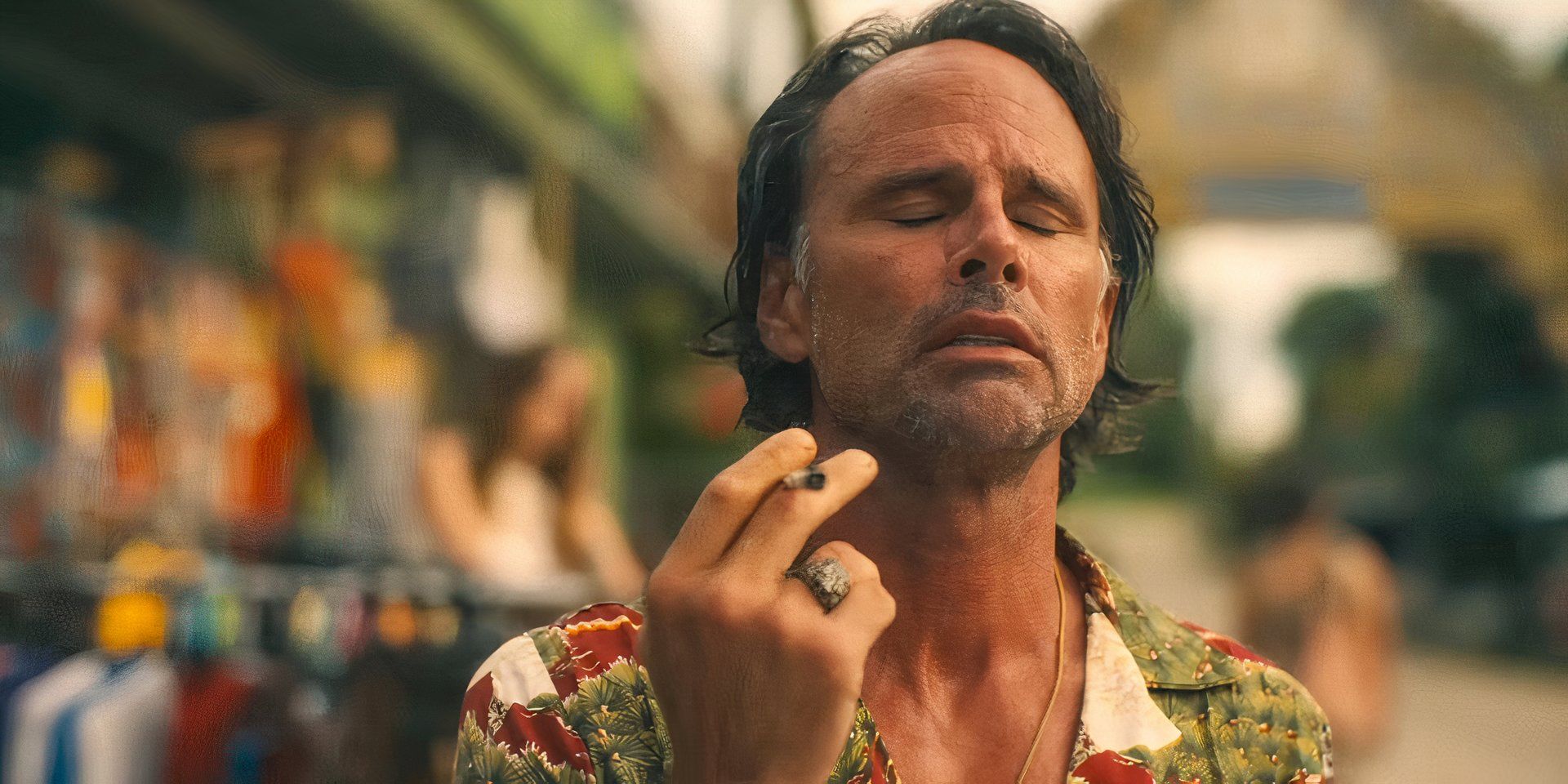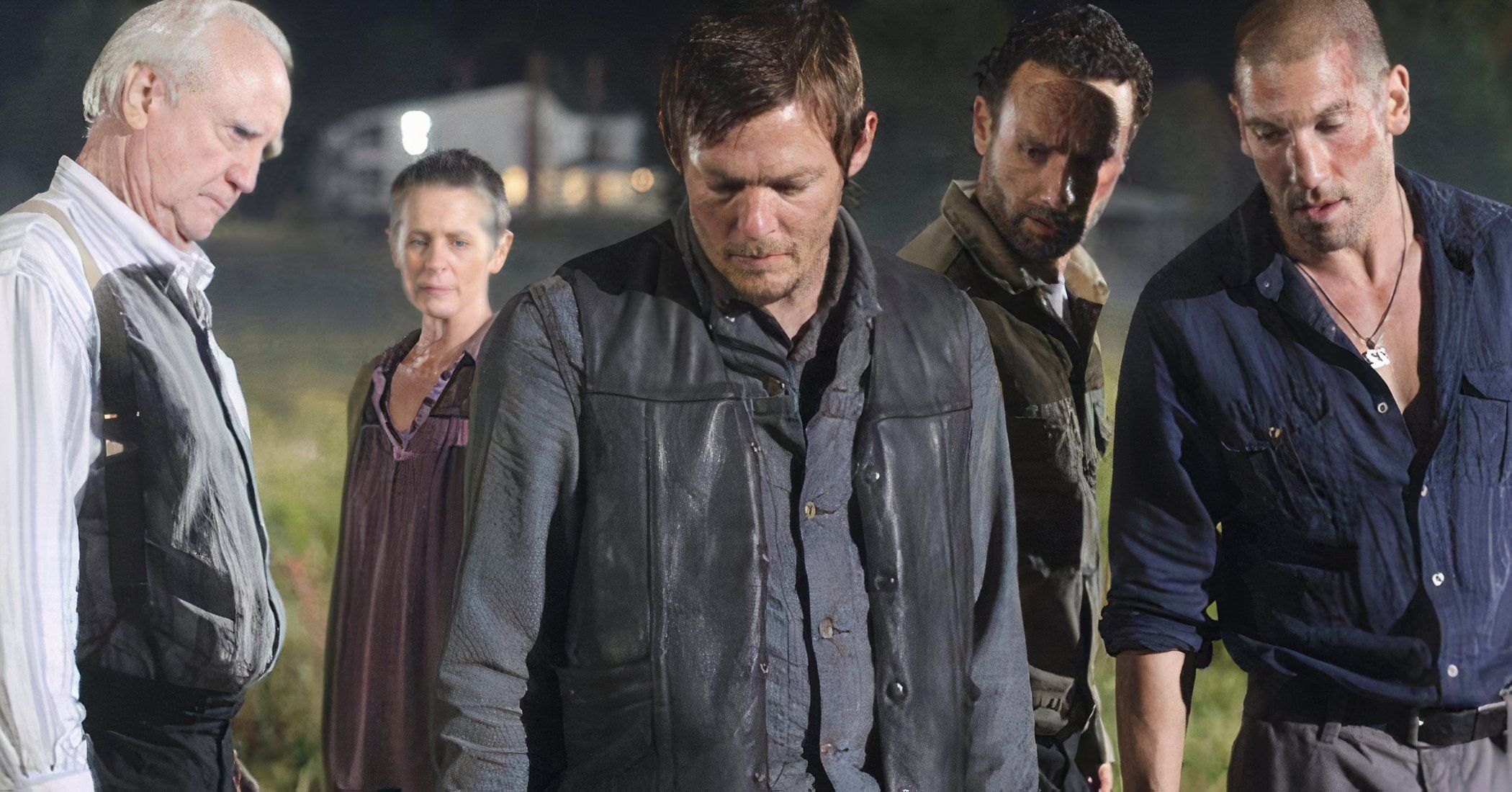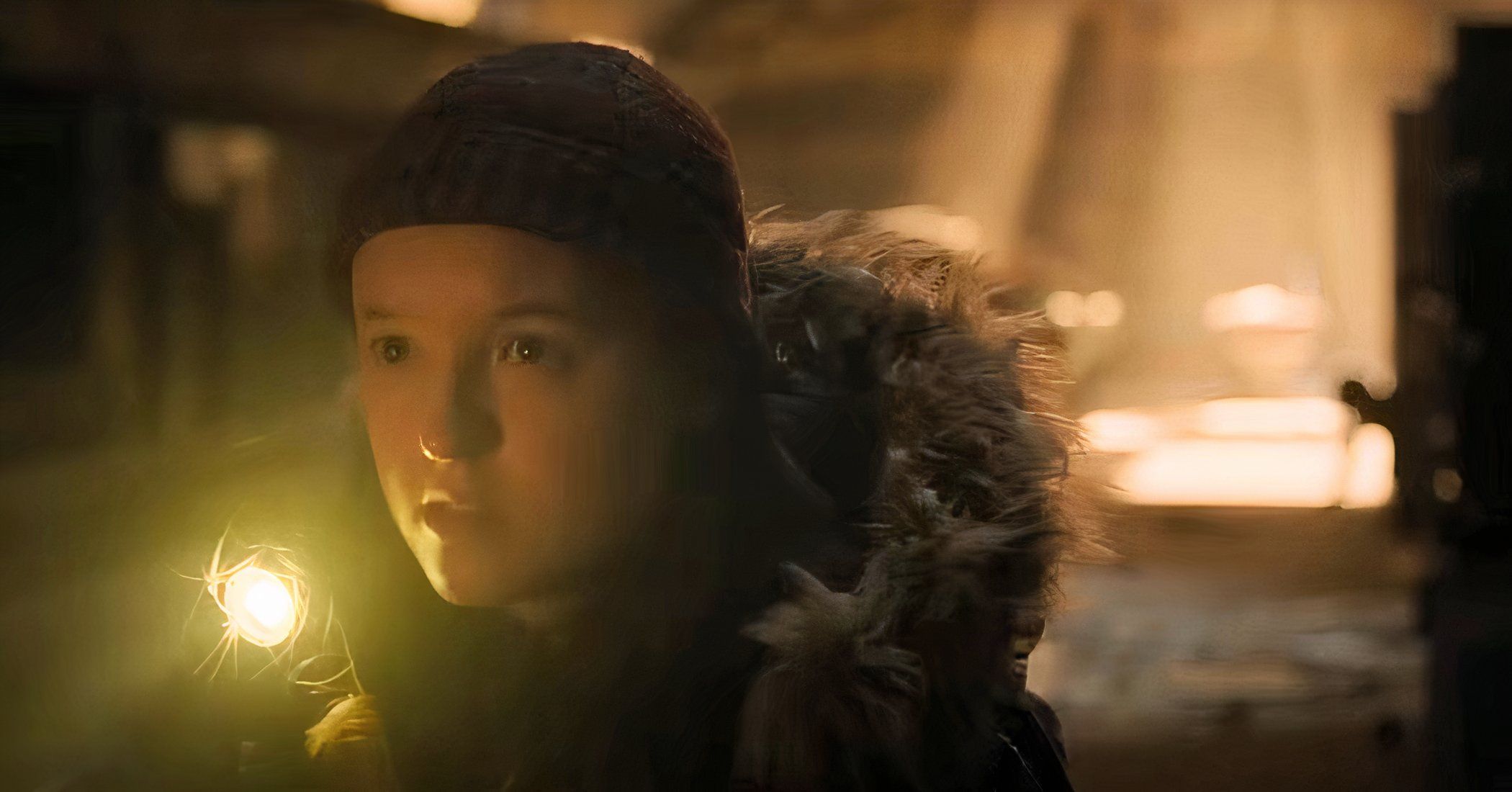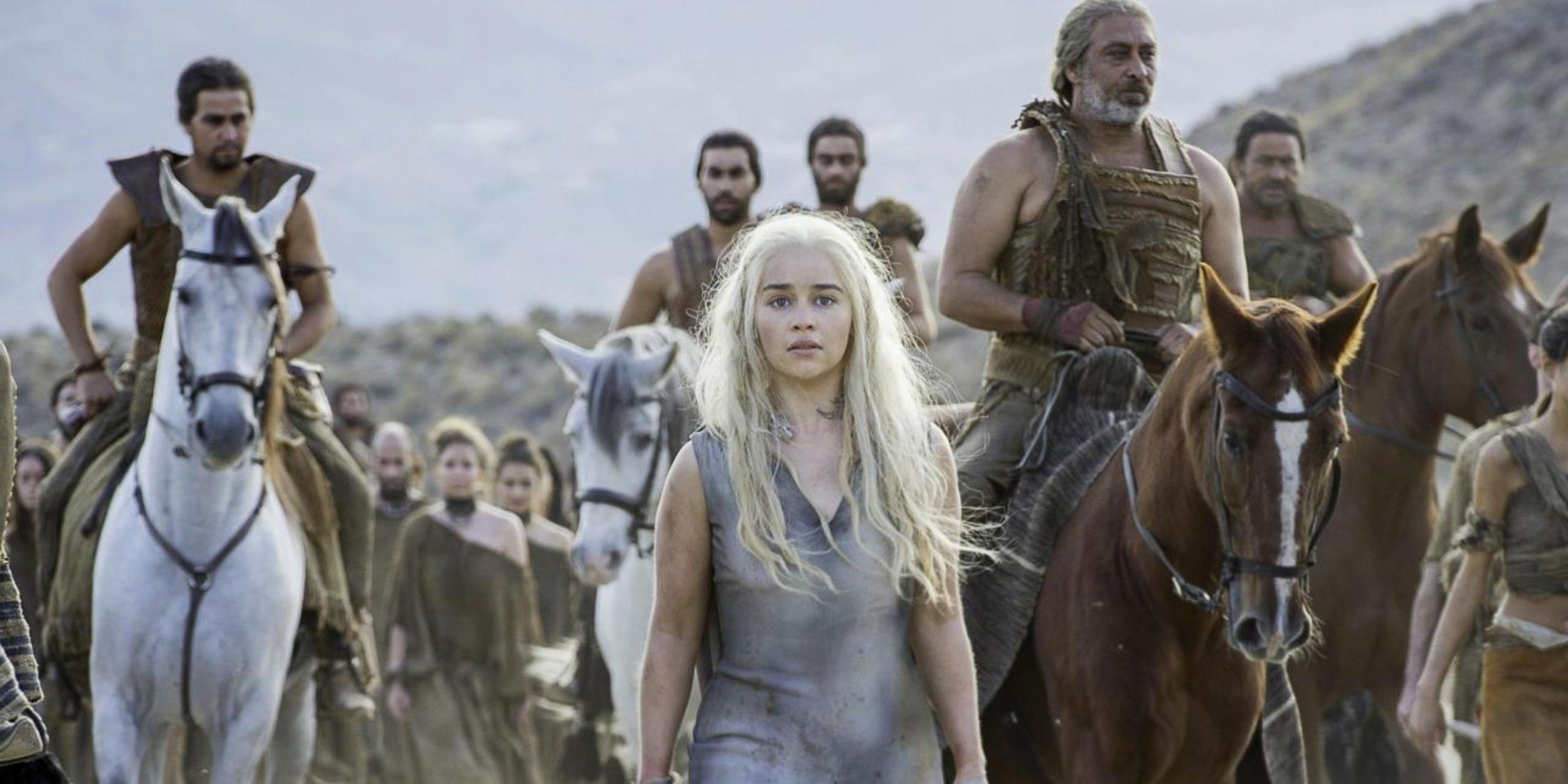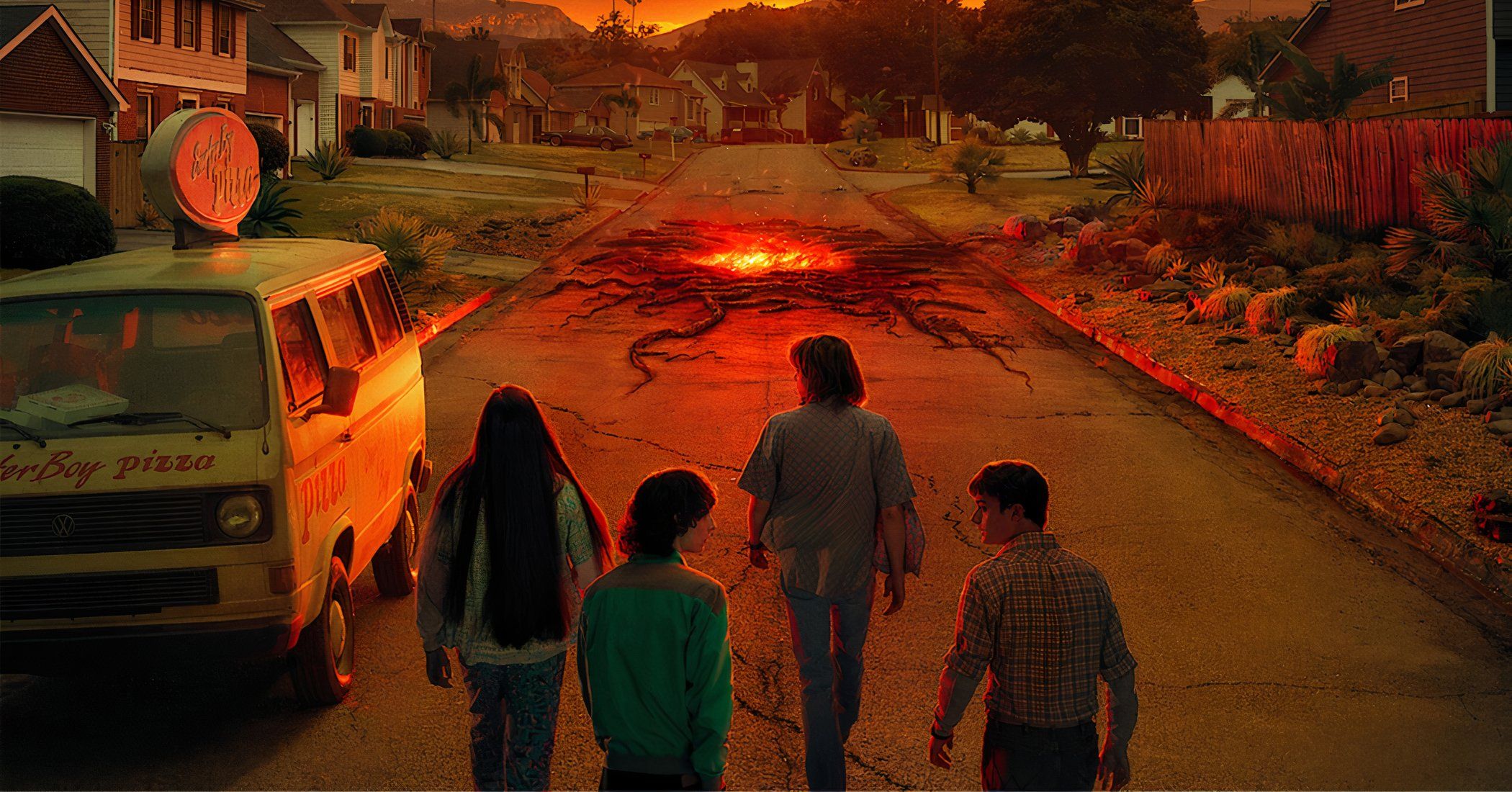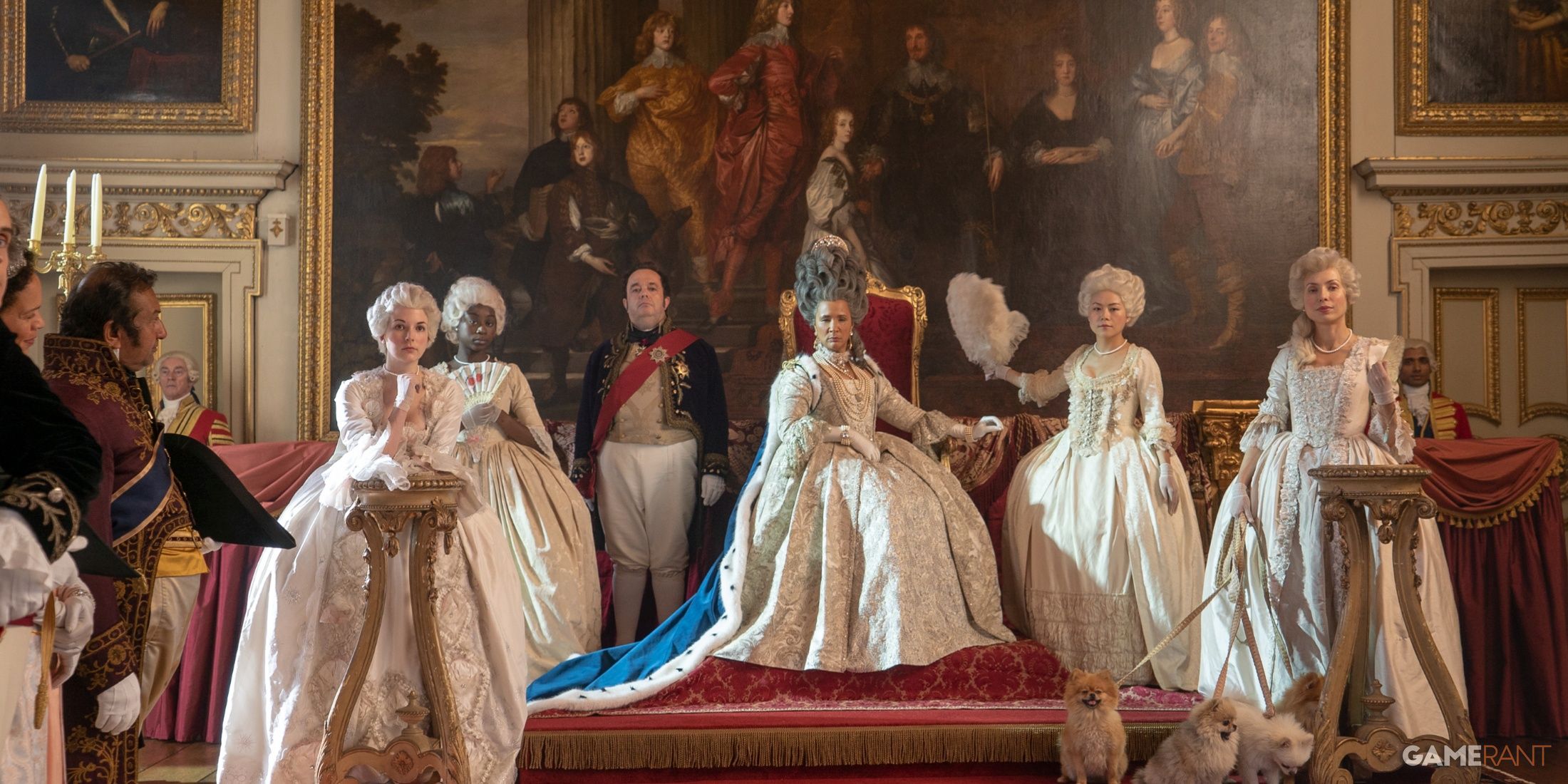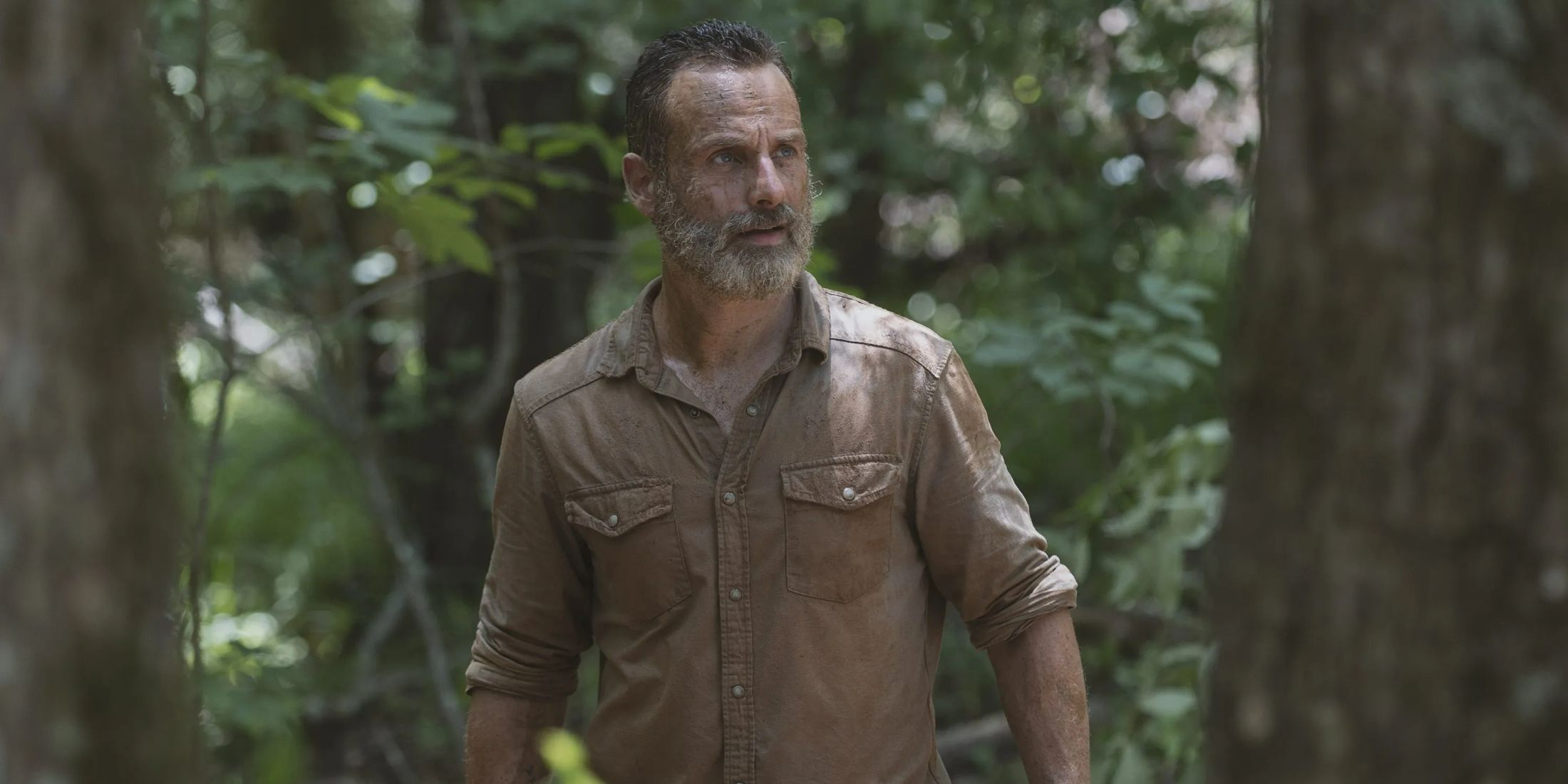
Summary
- Fans want theaters to screen TV episodes for a communal viewing experience that streaming can’t replicate.
- AMC’s The Walking Dead and HBO shows like Succession show the potential for theater screenings of TV episodes.
- Licensing hurdles and subscription models are challenging, but theaters and studios have much to gain from TV show screenings.
Shows such as “The Walking Dead” on AMC and “Succession” and “The Last of Us” on HBO are known for their powerful emotional impact, unexpected plot twists, and heated fan discussions, often generating just as much excitement as a big-screen summer movie. However, there is currently a significant gap in the market that hasn’t been addressed by studios: a communal cinematic experience specifically designed for television enthusiasts.
In today’s entertainment world where streaming services have taken over, movie theaters are seeking innovative methods to attract crowds. Consequently, viewers are urging film studios to schedule regular cinema screenings of TV episodes and at least wide releases for season premieres and finales. It appears that ignoring this potential revenue source is an unusual move for an industry known for its high costs. So, the question remains: Why aren’t movie studios capitalizing on this opportunity?
Why Streaming Services Should Embrace TV in Theaters
As a devoted fan, I’ve found myself caught up in an intense conversation on Reddit about a topic that’s close to my heart – why aren’t more television episodes, especially from high-end and niche series, being screened in theaters? A post that garnered significant attention questioned why the finale of The White Lotus wasn’t made available for a cinematic viewing. I would have gladly shelled out around $20 to watch the finale on a large screen tonight, surrounded by fellow TV enthusiasts, as suggested in the post. This idea resonated with many others, who also expressed their desire and willingness to pay for such an experience, indicating a strong demand for this service.
One Reddit user provided a compelling illustration of the strategy’s promise: “For years, Alamo Drafthouse in Austin would regularly fill an auditorium once a week as fans gathered to jointly watch ‘The Walking Dead.’ This wasn’t a one-off success; ‘The Walking Dead’ had a dedicated fanbase eager to occupy theaters, and they did so… every week. The Reddit user further pointed out that many of these fans likely opted for the group experience despite having another option: “This instance showcased a cable show where people were already paying to watch it at home.
AMC’s The Walking Dead Proved TV Can Sell Out Theaters
In its heyday, the AMC series “The Walking Dead”, featuring Andrew Lincoln as Rick Grimes and Norman Reedus as Daryl Dixon, transcended television status to become a significant cultural influence. At the peak of its broadcast, it routinely attracted over 10 million viewers per episode, sparking everything from costume play to communal viewing events. The Austin-based Alamo Drafthouse theater chain capitalized on this fanbase, regularly gathering crowds of enthusiasts who would collectively gasp at the screen as a beloved character met their end (farewell to Glenn, played by Steven Yeun) or cheer when Daryl came to the rescue.
Essentially, these events were organized solely by the theater, without any studio interference. As stated, Alamo Drafthouse didn’t charge for the movie screening itself; instead, they offered food vouchers for sale. This approach not only bypassed licensing issues but also fostered a lucrative and communal atmosphere. The user mentioned that during commercial breaks, the video/audio could be paused while a host engaged the audience in games or trivia. This interactivity is something streaming platforms can’t mimic. The commenter also pointed out that Alamo Drafthouse was cleverly making money from this setup, while AMC unfortunately missed out on any potential income from a similar venture.
HBO’s Cinematic Experience Potential From Succession to The Last of Us
The strategy wasn’t exclusive to horror blockbusters. User punk62 added another instance: “I recall watching the season 2 premiere of ‘The Righteous Gemstones’ at an Alamo Drafthouse. It was quite interesting.” While HBO’s southern televangelist satire doesn’t have the worldwide reach of ‘The Walking Dead’, it still attracted a dedicated audience, demonstrating that there’s potential for ticket sales even for shows with smaller fan bases.
If any television network has mastered the craft of high-stakes productions, it’s undoubtedly HBO. Shows such as “Succession” offer operatic boardroom confrontations that would captivate a live theater audience just as easily. Visualize the collective gasp from an audience during the climactic episode of Season 4, where the unexpected demise of Logan Roy, portrayed by Brian Cox with striking subtlety, unfolds mid-air. Or consider the heart-wrenching finale of “The Last of Us”, in which Joel, played by Pedro Pascal, makes a morally complex decision amidst the resonance of gunfire and hospital sirens. These scenes brim with cinematic intensity, expertly directed and scored—they seem destined for the big screen, and Warner Bros., their parent company, could be missing out on substantial revenue by limiting them to home viewing.
Real Successes: Game of Thrones, Doctor Who, and More
When done right, these events can and do sell out:
- The Game of Thrones Season 4 finale was screened at select IMAX theaters in 2015, paired with two key episodes. It generated $1.5 million on opening weekend—a limited release for a show already available at home.
- Doctor Who (BBC) episodes, especially anniversaries and regenerations, have routinely sold out limited screenings in the US and UK. The 50th Anniversary Special The Day of the Doctor, made $10 million globally in its brief theatrical run.
- HBO’s Euphoria was so popular during Season 2 that theaters in New York and L.A. held unofficial watch parties, packing rooms with fans desperate to react in real time.
Theaters in bustling cities and cultural hotspots, in particular, have thrived with such TV events. It’s no surprise that the internet is quickly flooded with memes following each episode – viewers are eager to discuss what transpired and bond with others over shared enjoyment. At these screenings, fans don’t merely attend; they come dressed up, reciting lines, creating a unique experience that leaves an indelible impression. A theater offers the chance to witness, react, speculate, and essentially geek out together. This level of enthusiasm doesn’t only boost ticket sales, it fosters community spirit and generates positive word-of-mouth publicity.
In a town near mine, a local theater screened “The Walking Dead”. Watching it with a crowd was exhilarating! I have a feeling that AMC or perhaps the cable companies might’ve been responsible for ending their screenings. Regardless of who did it, an external factor halted their ability to continue showing it, which was disappointing.
Licensing and Logistics: Why Netflix and Others Haven’t Jumped In
Due to China tightening its import restrictions and potentially blocking U.S. films, American film studios now face fewer lucrative overseas markets for box office earnings. This situation increases the burden on studio executives to think innovatively about domestic revenue generation. One promising, low-risk approach could involve hosting special screenings of popular episodes from shows on HBO, Netflix, Amazon Prime Video, Apple TV, and other platforms in movie theaters. Since they’re already investing in producing and promoting these series—with some episodes as long as full-length films—it seems logical to utilize theaters for additional profits. What’s the downside if it can generate income?
Many spectators question whether it’s financially feasible to consistently screen these shows in cinemas. One viewer put it this way: “It seems unlikely that numerous individuals would attend and pay $20 to watch the season finale of a show they’re already subscribing to and watching online.
User Pinewood74 proposed an idea that might be feasible under the condition that fans aren’t required to pay for additional access. They reasoned this by referencing the popularity of “The Walking Dead” during its peak, stating that many viewers didn’t have cable at that time. They mentioned that Season 1 of “The Walking Dead” was highly popular, and people wanted to watch the subsequent seasons as they were released. However, they didn’t want to spend money on cable subscription, so instead, they opted to purchase a movie ticket for the cinema experience.
Essentially, attending a large-screen event was a more entertaining and convenient option for numerous viewers to follow the show. Given today’s crowded and costly streaming landscape where each platform charges $10-$20 monthly, some fans might find it more appealing to purchase tickets per episode over several weeks instead of subscribing endlessly to another service.
Absolutely, that’s the crux of the matter. Services like Netflix might be hesitant to relinquish, if only briefly, their exclusivity over content. Their business model thrives on keeping subscribers, and if viewers realize they can watch major episodes in a cinema without subscription, it could undermine the perceived worthiness of their monthly plans. For these streaming platforms, keeping content locked behind a paywall is an essential part of their strategy to retain subscribers over the long term.
Licensing presents another challenge, as most TV shows require a complex maze of contracts, involvement from rights holders, and network approvals even for a single-night showing. This is the reason innovative theaters like Alamo Drafthouse have to think outside the box—offering food vouchers instead of tickets, transforming it into a “viewing party” as opposed to an official screening.
With suitable agreements established, there’s no obstacle preventing large chains from collaborating directly with studios for these unique events on special occasions. This wouldn’t be about abandoning subscriptions, but rather providing an additional choice for enthusiasts. Consider the nationwide theater release of Stranger Things Season 5—Netflix could effortlessly market it as a premium offering or even screen it ahead of schedule, charge around $20, and fans would undoubtedly be willing to pay such a price.
Fandom, Theaters, and Streaming: The Future of TV
It’s common for executives to underestimate how social and passionate TV fandom has grown. Just like people wait eagerly for midnight screenings of Marvel movies, they would gather enthusiastically to either cheer or cry during a TV finale that deeply resonates with them. Given that fans are ready to attend a real-life Bridgerton ball in large numbers, it’s highly likely that they would also be keen on watching the new season premiere at the cinema.
Theaters benefit greatly from such events, as blockbuster movies are diminishing in size and streaming services are cutting into profits. These events provide an element that traditional cinema is finding hard to sustain: excitement. You’ll see people dressed up in costumes, audiences reacting collectively to surprise plot twists, and entire rows laughing together.
If film studios are finding it hard to keep traditional cinema screenings profitable and movie theaters are striving to remain significant, then providing audiences with the opportunity to enjoy large-scale events together on a big screen seems like an obvious choice. Many people have enjoyed watching shows such as “The Walking Dead” in crowded theaters at midnight. That collective excitement doesn’t just survive—it flourishes. And it could potentially be the key to survival for both movie theaters and film studios.
Read More
- Poppy Playtime Chapter 5: Engineering Workshop Locker Keypad Code Guide
- Jujutsu Kaisen Modulo Chapter 23 Preview: Yuji And Maru End Cursed Spirits
- God Of War: Sons Of Sparta – Interactive Map
- Poppy Playtime 5: Battery Locations & Locker Code for Huggy Escape Room
- Who Is the Information Broker in The Sims 4?
- 8 One Piece Characters Who Deserved Better Endings
- Pressure Hand Locker Code in Poppy Playtime: Chapter 5
- Poppy Playtime Chapter 5: Emoji Keypad Code in Conditioning
- Why Aave is Making Waves with $1B in Tokenized Assets – You Won’t Believe This!
- Engineering Power Puzzle Solution in Poppy Playtime: Chapter 5
2025-04-21 20:45
